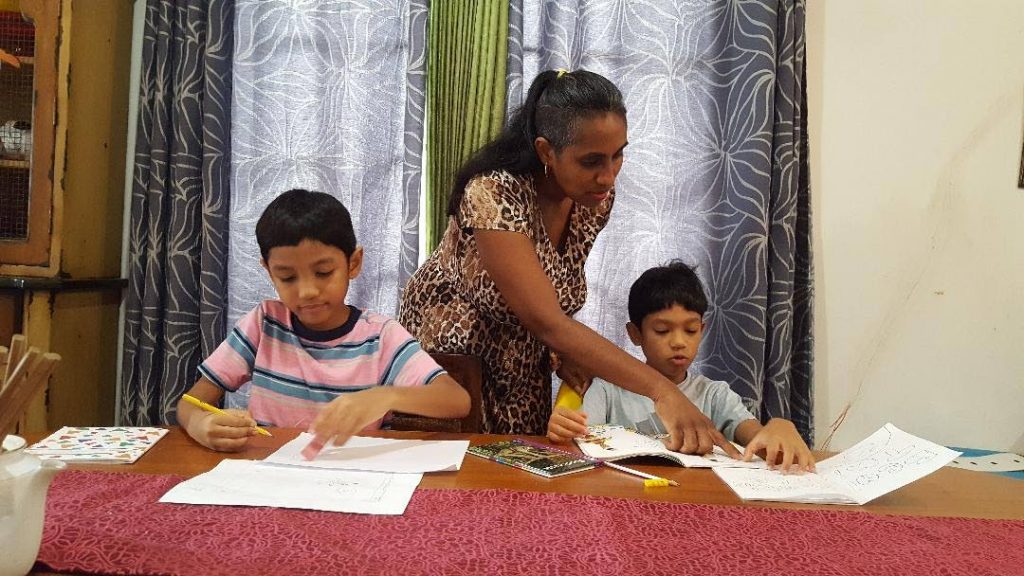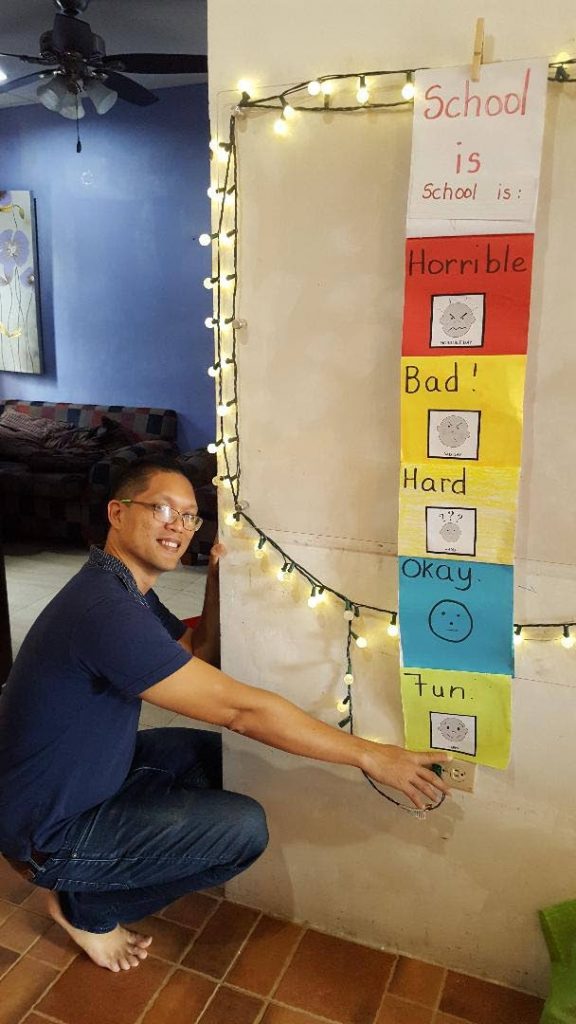Halena brings the school home

YEARS of fighting to get their autistic son into a school or being taught academics at school left Kevin and Halena Kong Ting disappointed and frustrated, but they were determined that their son Zachary would receive an education, as is his right.
Eventually, Halena, who used to be a secondary school teacher took a beginners' certificate course in autism education with the Autistic Society of TT (ASTT), and she made all the visuals for Zachary’s classes so she could teach him at home.
“Something amazing happened in the first month of homeschooling Zachary," she recalled. "I remembered in the ASTT course it said autistic learners were structured learners. I found a free, structured reading programme online and I said, 'This programme is going to be great for us.' We tried it – and after one month of doing this reading programme, Zachary read for me, speaking his first words...And as he learned more words he started speaking for himself.”
Around that time her other son, Rafael, began to be bullied at primary school. After talking to him she realised the students were not supervised during lunch. She started going to the school at lunchtime to supervise Rafael, leaving Zachary with Kevin, who worked at home.
When Kong Ting went to the school security officer about the fights she saw, he told her his job was to secure the property, so he would close gates if necessary, but he was not responsible for the children’s safety or breaking up fights.
She then spoke to the principal, who told her teachers were not obligated to be on the compound outside class hours and so could not guarantee her son's safety.
“Again my husband said, ‘Well, if you are homeschooling Zachary, why don’t you just homeschool Rafael?’ And that's was how I decided, after more research, to homeschool both of them.”
Lucky or not
Kong Ting told Sunday Newsday her family was fortunate to be able to afford speech therapy for Zachary, but many times they could not cover the cost of occupational therapy. As a result, she bought books on the topic online and worked with him at home.
She said many members of ASTT could not afford either therapy. Fortunately, every year, a speech therapist visits TT and spends a month with the ASTT, giving speech therapy, facilitating training workshops with parents, and giving the society advice on how to incorporate speech into the free sessions it provides. Also, this year, the ASTT found a sponsor which allowed it to access free occupational therapy for ten people.

In addition to a lack of therapy, very few were able to access public education, with the majority of autistic students being asked to leave at the pre-school or primary school level.
“So basically the kids are at home," Kong Ting said. "A lot of parents don’t homeschool their kids because they lack the confidence.
"Many of them can’t afford a sitter, which means someone, usually the mother, stays at home to mind the child.
"So just at the time you have to spend more money to take care of the child, and you’re happy to do it...at the same time, the earnings in your household goes down to one parent. That is the reality of living with a person with a disability, whether it’s a child or a relative.”
Kong Ting said some parents could not afford to stay at home, but were fortunate enough to have a willing older relative care for the child. She said although that relative took care of the child physically, they often could not help with developmental activities, and the child suffered.
This lack of education and development, she said, left an autistic person vulnerable because they remained dependent on other people to take care of them for the rest of their lives. She said she knew of many cases where the parent or primary caregiver died and no one else stepped up. The State had to take responsibility and the person with autism was placed in St Ann's Psychiatric Hospital.
“Because autism is classified as a neurological or brain-based disorder, they are placed in St Ann’s, whether the person is a child or an adult. We have children with autism who live in the children’s section of St Ann’s. That is not a suitable place for a person with autism.”
For the best
Kong Ting now believes homeschooling was the best form of education she could give her children because she tailored lessons to their needs. Although it was a financial sacrifice, she found comfort in the fact that they were safe and were “getting the best education they can get.”

She said she wanted to help guide her children into professions that would make them happy, so if they needed a degree, they would eventually do the SEA and CXC exams. If they preferred to be a technician, she would work with them to become certified.
In the meantime, she was using her degree in theatre to pioneer therapeutic support for autistic people through theatre at ASTT. She said it broke down social and non-verbal communication skills such as handshakes, high fives, and even smiling through play.
“I think had they been exposed to some sort of education at all, reading and writing would have been an excellent form of communication for them, other than just pointing or non-verbally trying to get our attention. I am hopeful that when they go out that skill can translate so they can interact with other people.”
She also hoped that soon, the government could find a way to regulate private special-needs schools with respect to price, protocols, procedures, and equipment.


Comments
"Halena brings the school home"